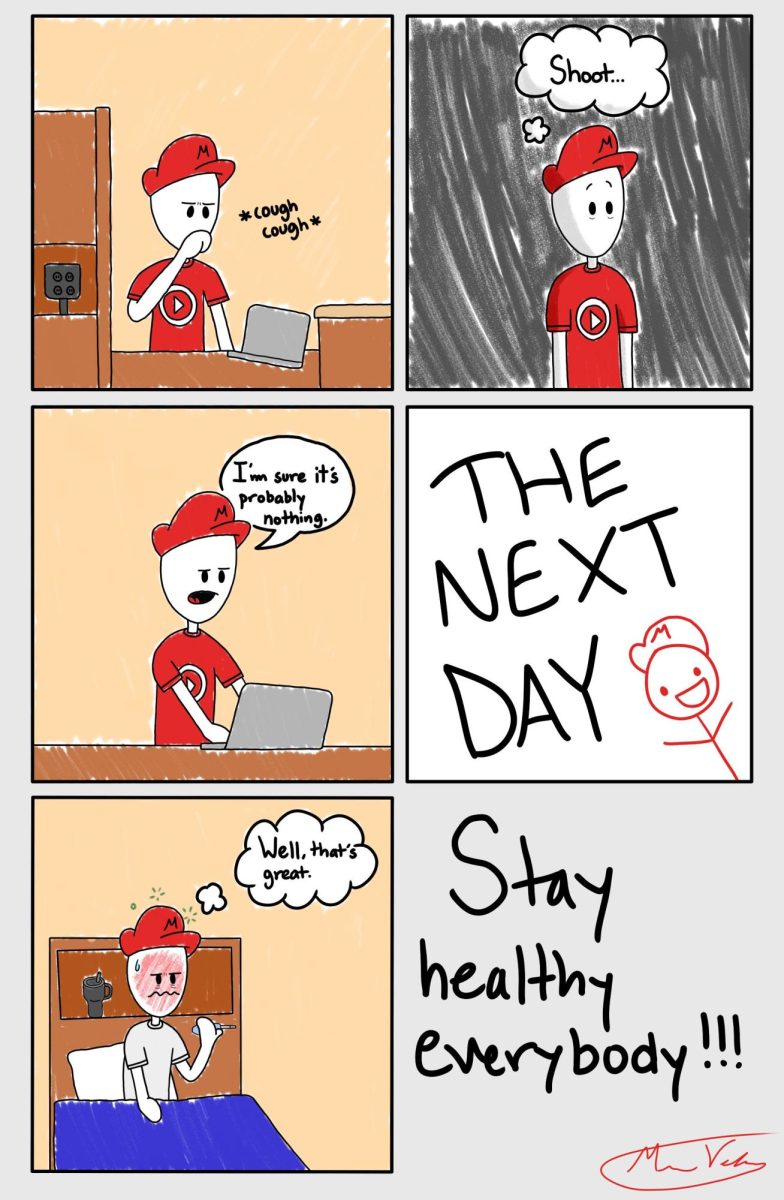On March 11, 2020, the World Health Organization declared the COVID-19 virus a global pandemic, states started to set into motion their individual plans to protect against the virus and we all began to wrap our heads around seeing people in medical masks in grocery stores and walking the street. I remember the first time I wore a mask into a store . . . I felt like I was gearing up to enter a scene from a dystopian movie.
As time went on, mask mandates and stay-at-home orders gradually became expected everywhere. Everywhere, that is, except for South Dakota – my state. Under the guidance of Governor Kristi Noem, South Dakota began to separate from every trend across the country. To this date, South Dakota remains the only state in the country to have never mandated masks or stay-at-home orders on a state-wide level, and the only state to have never ordered a church or business to close.
Noem faced a lot of scrutiny for her decisions both from other politicial leaders and the media. Some of her conservative values like the sanctity of life were even thrown back at her in attempts to imply hypocrisy. As over a year has passed since the beginning of the pandemic and South Dakota infection and death rates have continued to rise, her approach continues to be scrutinized – despite South Dakota’s economy recovering with a budget surplus and the lowest unemployment rate in the country.
To understand Noem’s leadership, we should understand her. When Noem was 22 years old, her father died in a farming accident and she had to take over his business. Months after his death and well into feelings of helplessness, she cleaned out his truck and found several tapes he had recorded giving advice on his management of crops and financial issues. She points back to that experience of holding her father’s words in her hands as being a defining point in her career to be like her dad – not only a person of words, but of action. I can relate to that sentiment.
Reflecting on that experience in a speech this February, she said, “In that moment, I felt a strange type of peace settle over me. Scripture talks of a ‘peace that passes all understanding.’ It was as if in that moment, God was saying to me, ‘I will provide. Stop worrying. You will be ok. Your family will be ok. I’ve got this.’”
With a similar confidence, she explained to us that her objectives were not just to keep us safe and healthy, but to avoid sacrificing South Dakota’s economy in exchange for that safety. She said physical health was not her only concern, “but also, how does it affect their well-being, their economic well-being, their ability to keep their kids in school, their ability to keep their businesses open, pay their bills, that’s been incredibly challenging.”
Throughout the pandemic, her message has been unified on the theme that government was created by the people for the people, and governors do not have the authority to override their citizens’ personal responsibility with a mandate for behavior. She decided early on not to require masks or state-wide stay-at-home orders, but instead to provide all the necessary medical information and allow individual communities the freedom to make their own decisions as they saw would best benefit their circumstances.
She said she wasn’t expecting to stand alone, but she hasn’t waivered from the principles she’s convinced were the best for her state – my state. That kind of leadership inspires me, and her example as a strong female leader isn’t lost on me either.
As a Christian, I know it’s essential for any leader to lead with actions and not just words. That’s true in civic duty, in regular daily responsibilities and in our service to God. James 1:22 warns against the self-deceit that comes with having empty intentions, however good they may be. I’d like to strive for something better.

























































